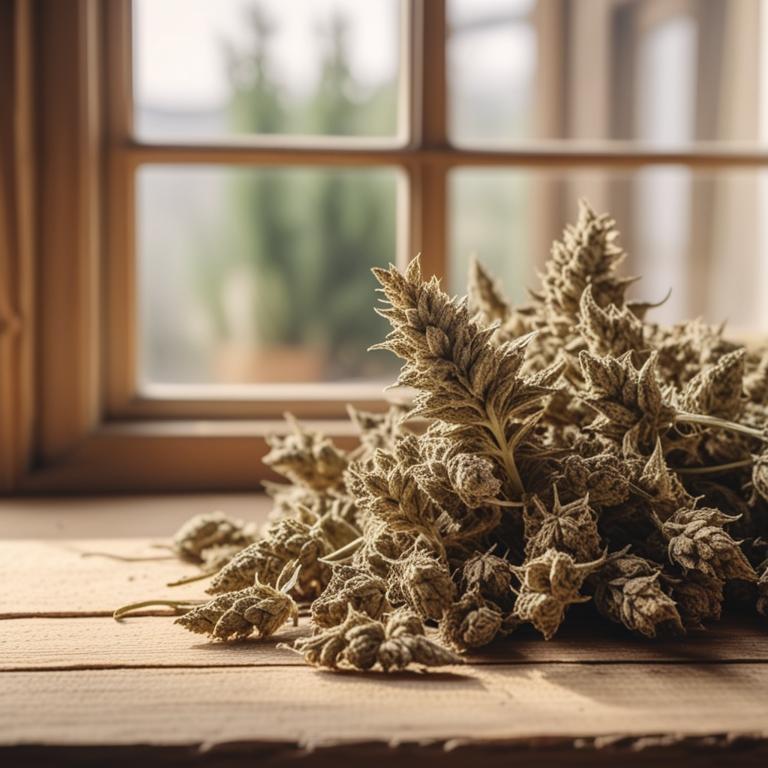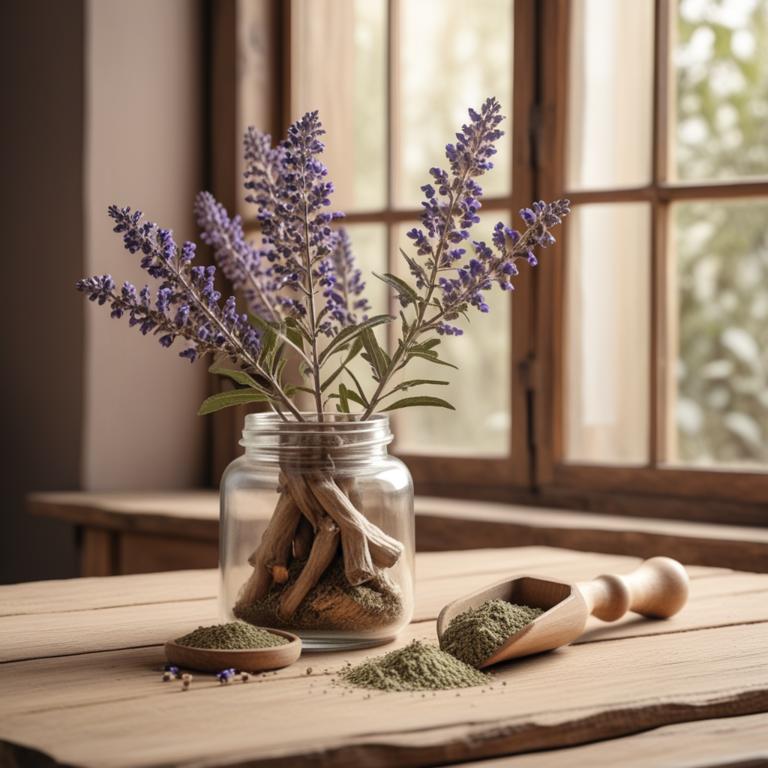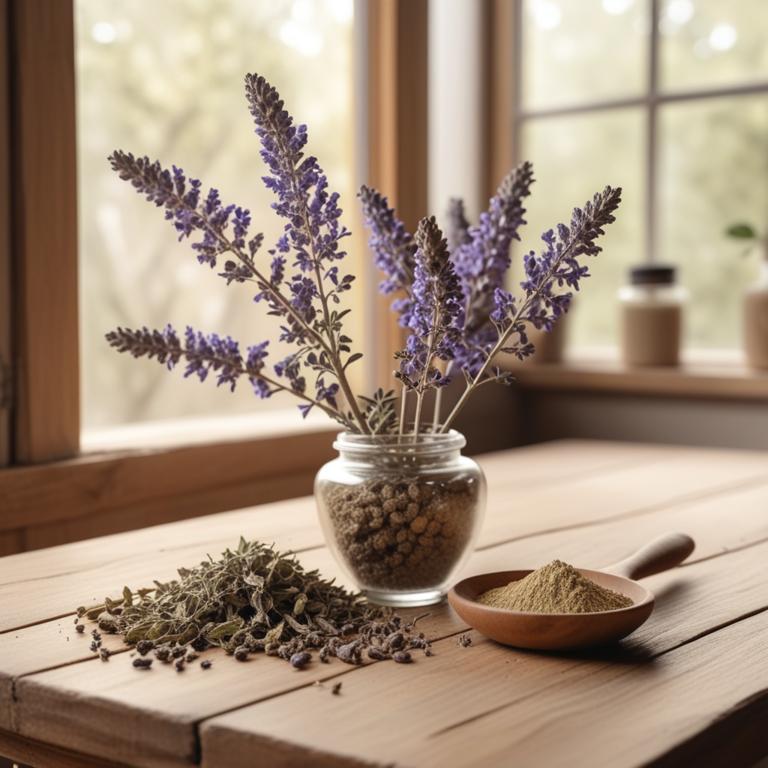Updated: Dec 1, 2024
Low Sperm Count: Exploring the Reasons, Herbal Solutions, and Preparations
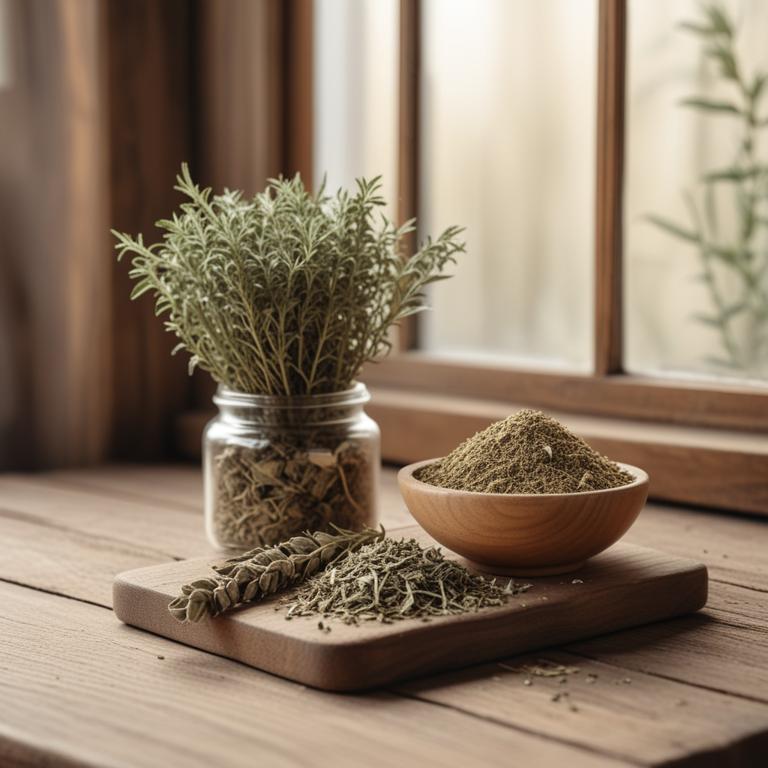
Low sperm count, also known as oligospermia, is a condition where a man's semen contains fewer sperm than normal.
This can make it difficult to conceive a child, causing stress and emotional distress for couples trying to start a family. The causes of low sperm count can be varied, including hormonal imbalances, environmental toxins, certain medical conditions, and even lifestyle habits such as smoking and excessive drinking. Fortunately, certain herbs have been found to help boost sperm count and improve fertility. Ashwagandha, for example, is an adaptogenic herb that helps to reduce stress and improve hormone balance, which can contribute to healthy sperm production.
Tribulus terrestris is another herb that's been shown to increase sperm count and motility, making it easier for sperm to reach the egg. Other herbs like maca and ginseng are also believed to have a positive effect on sperm production and fertility. To use these herbs for low sperm count, they can be consumed in various forms, including teas, capsules, and powders. Drinking a warm tea made with ashwagandha or tribulus terrestris root can be a soothing and effective way to support sperm health. Some herbal preparations, like Tribulus terrestris capsules, can be taken daily to support fertility and sperm production.
It's also worth noting that these herbs can be used in conjunction with other fertility-enhancing treatments, such as acupuncture and yoga, to support overall reproductive health.
Table of Contents
- What are the reasons behind low sperm count?
- What benefits can herbs offer for individuals experiencing low sperm count?
- What are the primary herbal remedies for low sperm count?
- What herbal supplements can increase sperm count in men with low sperm count?
- Which herbs should be avoided if you have a condition known as low sperm count?
- FAQ
What are the reasons behind low sperm count?
The main causes of low sperm count are a combination of medical conditions and lifestyle factors that can affect the production and quality of sperm.
Varicocele, for instance, is a swelling in the veins of the scrotum, similar to varicose veins in the legs. This swelling can cause the testes to overheat, damaging the sperm and reducing sperm count. Hyperprolactinemia, on the other hand, is a condition where the body produces too much prolactin, a hormone that can suppress the production of sperm. High levels of prolactin can be caused by a variety of factors, including certain medications, thyroid problems, or even stress.
Hypogonadism is another common cause of low sperm count. This condition occurs when the testes do not produce enough testosterone, a hormone essential for sperm production. Low testosterone levels can be caused by a variety of factors, including genetics, injury, or certain medical conditions. Lastly, cryptorchidism, also known as undescended testes, is a condition where one or both testes fail to move down into the scrotum during fetal development.
This condition can cause the testes to overheat, damaging the sperm and reducing sperm count.
What benefits can herbs offer for individuals experiencing low sperm count?
Using certain herbs can be beneficial for men with low sperm count.
These herbs have been shown to improve sperm quality and increase fertility. They do this by increasing sperm count, motility, and morphology. This means that more sperm are present, they are able to move properly, and they have the right shape.
Improved sperm quality can increase the chances of successful fertilization and pregnancy. Additionally, some herbs have been found to have anti-inflammatory properties, which can help to reduce oxidative stress and protect sperm from damage. They can also help to balance hormones, which is essential for healthy sperm production. Furthermore, some of these herbs have been traditionally used to boost energy and vitality, which can be beneficial for men who are trying to conceive.
By incorporating these herbs into their diet, men with low sperm count may be able to improve their fertility and increase their chances of becoming fathers.
What are the primary herbal remedies for low sperm count?
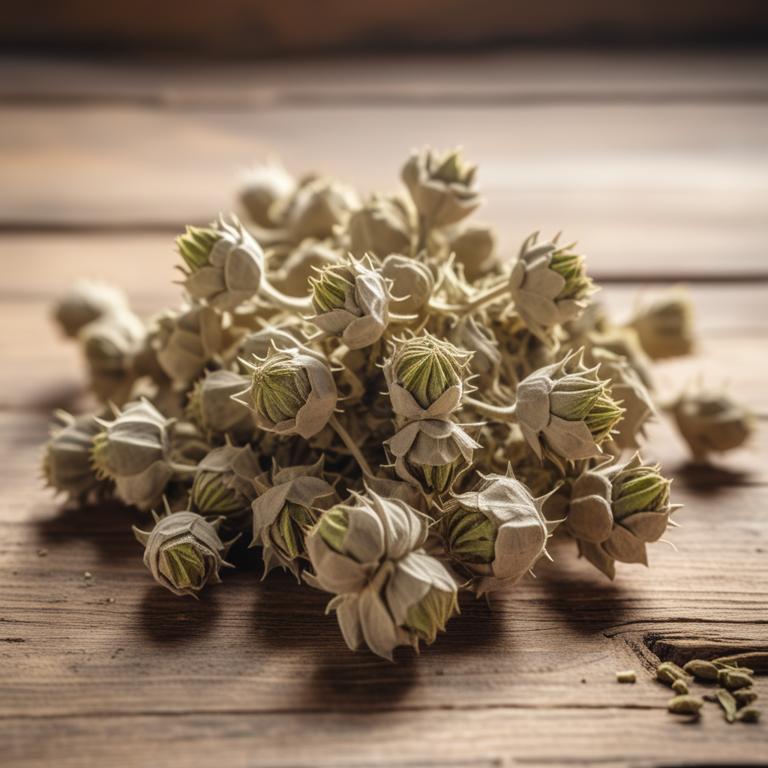
Herbs can play a role in supporting fertility in men with low sperm count.
One herb, Tribulus terrestris, helps increase testosterone levels in the body, which is crucial for sperm production. It does this by stimulating the testes to produce more testosterone. Withania somnifera, also known as Ashwagandha, is another herb that helps reduce stress, which is a known contributor to low sperm count. When we're under stress, our bodies produce more cortisol, a hormone that can lower testosterone levels. By reducing cortisol, Ashwagandha helps create an environment that's more conducive to sperm production.
Maca, or Lepidium meyenii, is a plant that's rich in nutrients and helps support the endocrine system, which regulates hormone production, including testosterone. It's also been shown to improve sperm count and motility. Mucuna pruriens is a plant that contains an amino acid called L-DOPA, which helps increase dopamine levels in the brain. Dopamine is a neurotransmitter that helps regulate the reproductive system, and increased dopamine levels can lead to improved sperm quality and count. Piper longum, also known as Long pepper, has been used in traditional medicine for centuries to improve fertility. It's believed to help increase sperm count and motility by stimulating the testes to produce more testosterone and improving the health of the sperm.
These herbs work in different ways to support fertility, but all have been shown to be effective in some way.
What herbal supplements can increase sperm count in men with low sperm count?
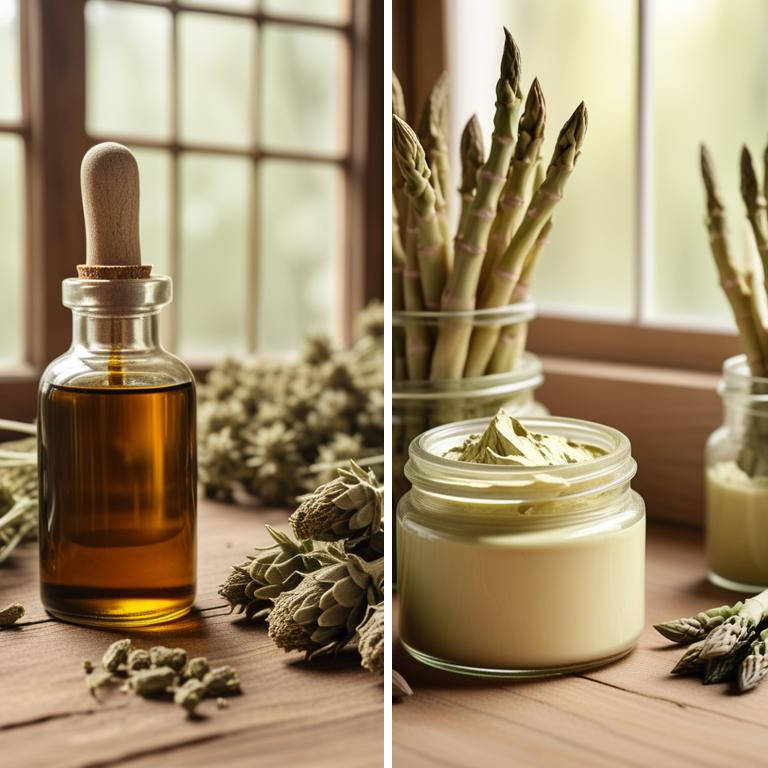
When it comes to low sperm count, herbal preparations can be a helpful addition to treatment.
A decoction is a liquid extract made by simmering herbs in water, which can be effective in increasing sperm count. This is because decoctions can bring out the active ingredients in herbs like ashwagandha and shilajit, which are known to reduce stress and increase testosterone levels. A tincture is another form of herbal preparation that's taken in small amounts. Tinctures are made by soaking herbs in a solvent like alcohol or glycerin, which helps to release their active ingredients. Tinctures of herbs like ginseng and maca can help to increase sperm count by improving blood flow to the reproductive organs and boosting fertility hormones.
An infusion is similar to a decoction, but it's made by steeping herbs in hot water for a shorter time. Infusions are often used for herbs like peppermint and ginger, which can help to reduce stress and improve digestion, both of which can contribute to low sperm count. Herbal capsules are a convenient way to take herbs, and they can be made with a variety of ingredients. Capsules can contain herbs like tribulus terrestris, which is known to increase testosterone levels and improve sperm count. Finally, herbal creams can be applied topically to the skin, where they can be absorbed into the bloodstream.
Creams can be made with herbs like saw palmetto, which can help to block the conversion of testosterone to dihydrotestosterone, a hormone that can contribute to low sperm count.
Additional Resources:
Which herbs should be avoided if you have a condition known as low sperm count?
If you have low sperm count, it's best to be careful with some herbs that might not be good for you.
Ginkgo biloba, for example, can cause problems with blood clotting, which can be a big issue for people trying to get pregnant. This is because sperm need to travel through the bloodstream to reach the egg, and if the blood can't clot properly, it can be hard for sperm to make the journey. Ephedra sinica, also known as Ephedra, can be a real concern as well. It's often used to boost energy and weight loss, but it can also increase heart rate and blood pressure, which can be stressful for sperm production. This means that if you take Ephedra, you might actually be making your low sperm count worse. Catha edulis, or Khat, is another herb to watch out for.
It can cause issues with sperm movement and fertility, and it can also lead to anxiety and stress, which can further lower sperm count. This is because stress can interfere with hormone production, which is important for sperm development. Panax ginseng is often used to boost energy and vitality, but it can also have a negative impact on sperm count. This is because ginseng can increase stress levels and make it harder for sperm to develop properly. Schisandra chinensis, or Five-flavor berry, might seem like a harmless herb, but it can actually cause problems for men with low sperm count. It can slow down sperm production and make it harder for sperm to move, which can make it harder to get pregnant.
It's worth noting that some of these herbs can be beneficial in small amounts or for specific health issues, but if you have low sperm count, it's best to talk to your doctor or a qualified herbalist before using them.
FAQ
Are there any specific herbs that can prevent low sperm count?
Some herbs may help improve sperm count.
For example, ashwagandha is thought to reduce stress, which can affect sperm production. Tribulus terrestris may also boost sperm count by improving hormone balance.
Maca root is another herb that could support fertility by regulating hormone levels and improving sperm quality, but more research is needed to confirm its effects.
Is it safe to use herbal remedies for low sperm count during pregnancy?
Using herbal remedies for low sperm count during pregnancy is not recommended.
These remedies can interact with medications or worsen underlying health conditions. Some herbs, like ginseng and saw palmetto, may affect hormone levels, while others can cause stomach problems or allergic reactions.
Always prioritize your health and safety during pregnancy.
Are there any herbs that can reduce the frequency of low sperm count?
Some herbs, like ashwagandha and tribulus terrestris, have been studied for their potential effects on fertility.
Ashwagandha is believed to help reduce stress, which can contribute to low sperm count. Tribulus terrestris is thought to increase sperm count and motility.
These herbs are sometimes used as a natural aid to support fertility.
Related Articles

The Causes and Natural Relief of Ovulation Pain

Understanding Endometriosis: Its Causes and Natural Remedies with Medicinal Herbs

Understanding Endometriosis Pain: Exploring Causes and Herbal Remedies
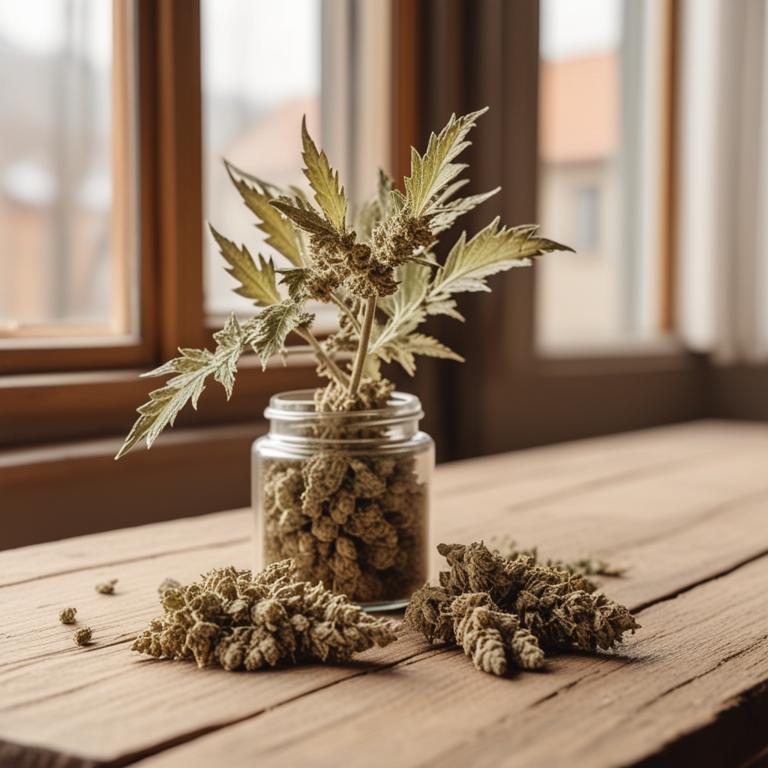
Understanding Uterine Fibroids: Causes, Medicinal Herbs, and Alternative Treatments

Amenorrhea Causes, Symptoms, and Treatment with Medicinal Herbs
